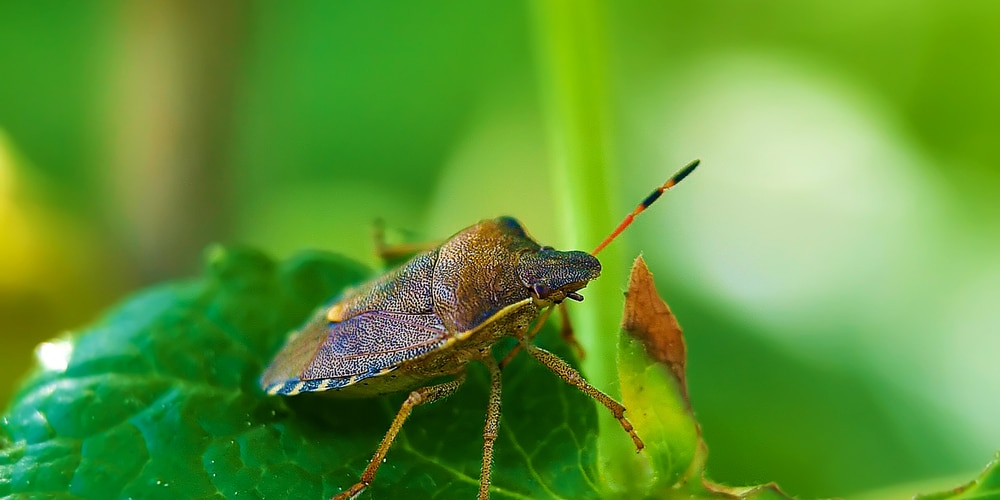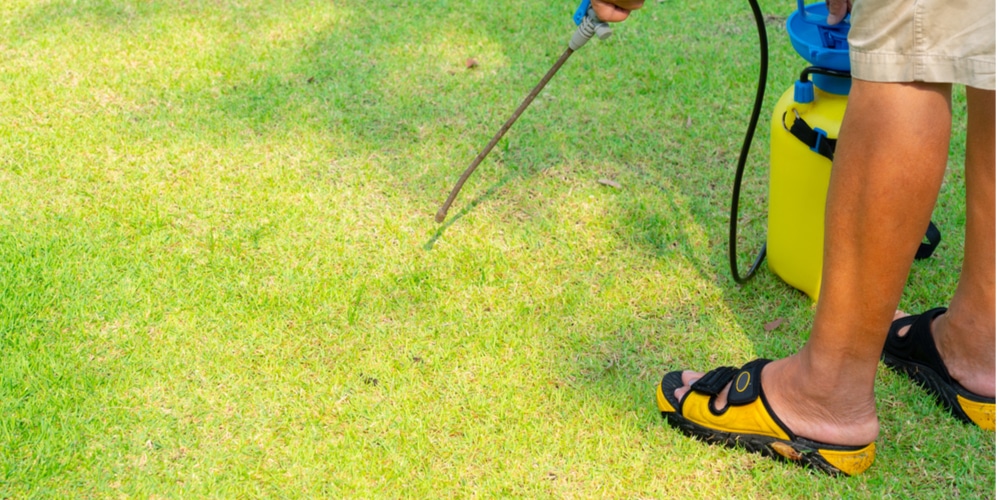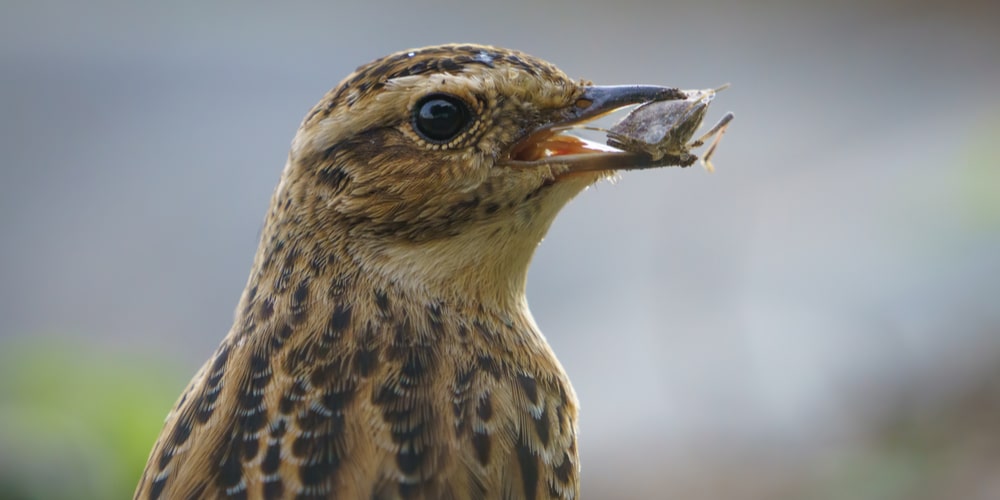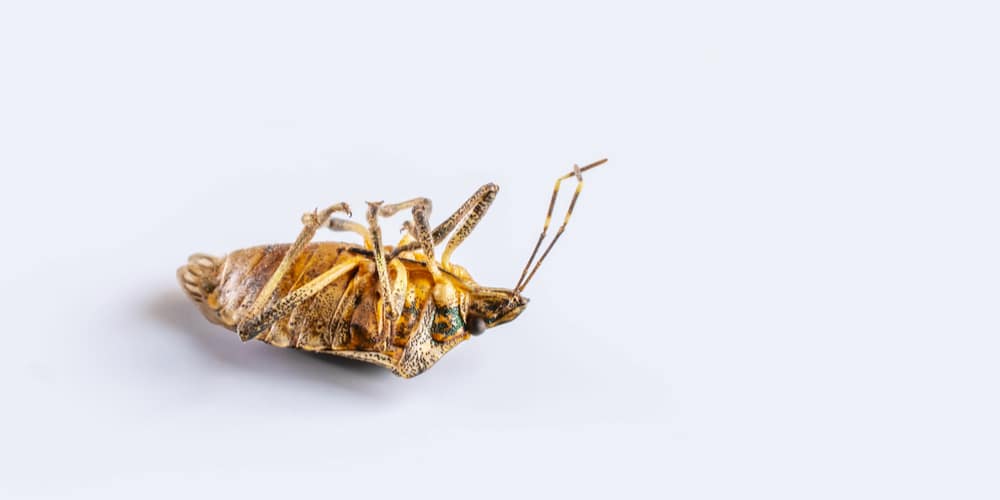Chinch bugs are a common pest that can affect St Augustine grass lawns. You will know your lawn has chinch bugs if you start noticing irregular dead patches popping up throughout the yard.
These patches will have a tan look to them and won’t spring back when you walk across it. Chinch bug damage is more noticeable during the summer months when St Augustine grass is its healthiest.
The good news is that there are many ways to get rid of chinch bugs and stop them from invading your yard. Let’s look at how to eliminate chinch bugs in St Augustine grass.
Signs of a chinch bug invasion
Chinch bugs are tiny and difficult to spot; that’s why it’s important to look closely as you walk throughout your yard. If you have chinch bugs, you’ll see small black dots.
Chinch bugs can also be confused with flea beetles which will only cause damage in the cooler months of the year. Chinch bugs tend to stay in one place and form dead patches, flea beetles that scramble all over the yard.
In order to get rid of chinch bugs, you’ll need first to determine that your yard is suffering from a chinch bug invasion. Using pesticides designed for the wrong insect may not be effective.
How to Eliminate Chinch bugs in St Augustine Grass?
Chinch bugs are notoriously difficult to eliminate from St Augustine grass. These insects use straw-like mouthpieces to suck the sap out of St Augustine grass. The best way to eliminate chinch bugs is to attack them using either insecticide or natural pest control methods. Try one of the following chemical or biological methods to rid your yard of those pesky insects:
How to Eliminate Chinch bugs in St Augustine Grass?: Use a pesticide
Learning how to eliminate chinch bugs is not difficult, but it requires using an effective pesticide that is designed for the job at hand. Apply a chinch bug preventative treatment in the spring before the insects become active. This will kill any eggs that haven’t hatched yet and help protect your yard against future chinch bug invasions.
If you already have an invasion, you can apply a chemical insecticide that’s been designed to kill chinch bugs. Always read the label before using chemicals in your yard and follow the instructions exactly. Some substances will need to be applied a second time to ensure you’ve eliminated the chinch bugs entirely.
When using chemicals in your yard, you should keep pets and children out of the area for at least 24 hours. It’s also wise to wear long sleeves and long pants during application. Don’t apply chemicals on windy days, or they will be carried on the breeze to other areas. You should also only dispose of chemical products by following manufacturers’ instructions.
Introduce an insect predator
There are many insects that are beneficial to your yard that will eat chinch bugs. The most common are wasps, spiders, or pirate ants. Introducing any of these to areas affected by chinch bugs will go a long way towards ridding your yard of these pests. Birds also feast on chinch bugs.
You can purchase beneficial insects online or at your local garden center. Choose an insect predator that’s of no threat to humans or pets but will feed on chinch bugs and help eliminate them from your lawn. You can also attract beneficial insects that will eat chinch bugs by planting flowers in your yard.
If you are trying to attract beneficial insects to your yard, it’s best not to use insecticides on the affected areas of grass. When the wasps, ants, or spiders each the cinch bugs, they will also be affected by the pesticides and die. You, therefore, need to either use chemicals to control the chinch bugs or organic methods such as attracting beneficial insects. You can do both at once.
Organic pesticides for chinch bugs
Neem oil works well to eliminate chinch bugs and it may also help to prevent future infestation too. It must be applied early in the spring before the chinch bugs become invasive. This is a natural pesticide and completely safe for your family and pets.
Neem oil also helps prevent future infestation because of its penetrating properties. The oil works to suffocate eggs before they hatch, therefore preventing future invasions.
Hire a professional
A final option to rid your yard of chinch bugs is by hiring a professional pest control service to do the job for you. This will help you avoid having them return in the future. Be sure to look for a service that uses environmentally friendly pesticides, this will help protect your yard and the environment.
How to Eliminate Chinch bugs in St Augustine Grass: Preventative methods
Once you’ve rid your yard of chinch bugs, you should take preventative measures to ensure they don’t come back. If one season is bad, it’s likely only the beginning unless you make some changes. Water regularly and use a pesticide in the springtime to kill any eggs that didn’t hatch.
Take care of your lawn
Lawns are able to resist insect infestation if they are healthy and well maintained. Take good care of your lawn by watering it regularly. Dry conditions can cause chinch bugs to invade and flourish in your yard. Using a soaker hose will help you avoid this. Watering twice a day is preferable, but once a day is better than not watering at all.
Ensure that you regularly dethatch your lawn as a build-up of organic matter gives insects pests somewhere to live and breed. You can easily dethatch your lawn using a rake to pull out organic matter. This will allow the grass to grow and thrive.
You can also mow your lawn regularly and use annual fertilization to keep the grass in good condition.
How to Eliminate Chinch bugs in St Augustine Grass?: Conclusion
Chinch bugs are unsightly pests that can do considerable damage to your yard. You may not be able to get rid of them entirely if they infiltrate your lawn, but you should be able to keep their numbers in check.
Most importantly, take preventative measures once they’re gone. Water regularly and maintain the health of your grass. This will help prevent them from coming back.



